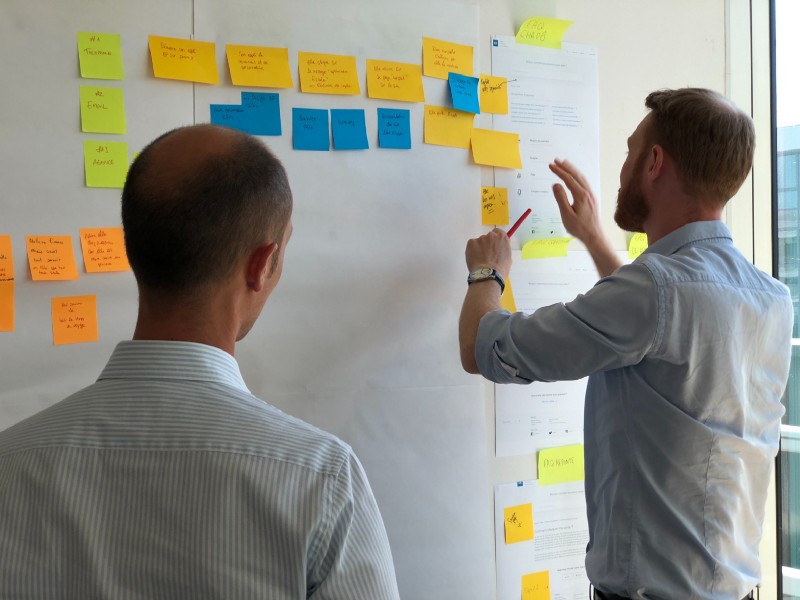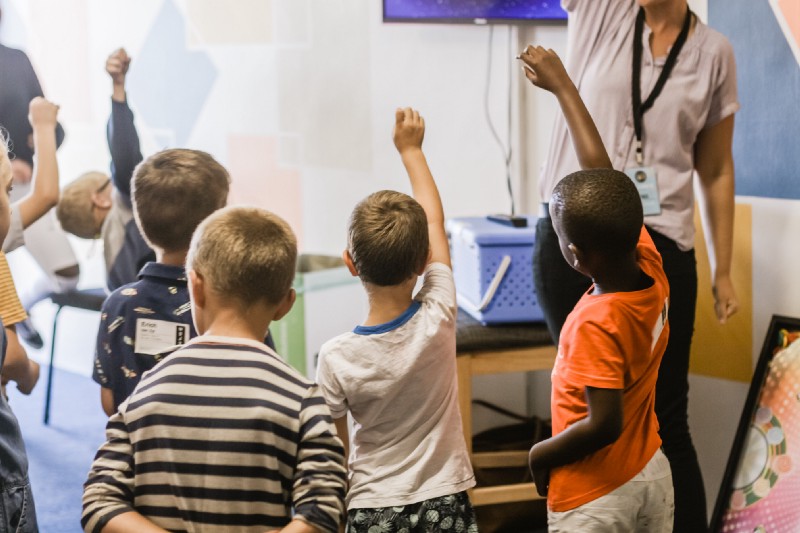I am on a journey to deliver student perspectives to stakeholders inside and outside of education to ensure student voices are heard. My hope is that every student is at the proverbial table as we make important educational decisions that will influence the rest of their lives. This is about bringing young people out of the shadows.
The idea for these posts came directly from one of my students. After writing a blog about empowering students and asking for feedback, I waited for responses to come in. I believe the crickets outside my window made more noise than the readers of that post. However, I did receive one piece of feedback and sure enough, the person was an 18-year-old high school student of mine. He helped me realize that I need to start taking my own advice. I needed to listen to my own message. I was offering inspiration on how we educate our young people and I, too, was forgetting to involve the youth voice. Once again, I was taking this journey alone and writing about what students needed without including the most important voice of all. I just needed to stop my roll, drop what I felt needed to be done, and listen to my students. There is an opportunity to be just like my favorite children’s book character, the Lorax. I need to make sure someone is speaking for the students. I will not stand by and underestimate them. I will give them the opportunity to tell their stories. I learn and am inspired every day because of them. I hope I can do the same for you.
My first interview was with Jacob. Jacob is a recent high school graduate. I was humbled and inspired as we spent almost two hours talking at a local coffee shop about his K-12 journey. Throughout the discussion, there were four clear trends that appeared very clearly. I will do my best to share these with you:

“Success of a school should be measured by happiness.”
According to Jacob, “You can measure the success of a school by the happiness of the students.” He added, “If a student hates school, they will never learn.” Teachers create learning environments that not only encourage learning, they provide a safe and positive space for kids to be happy. What is the happiness score at your school? In my opinion, the best teachers understand that we must meet the basic needs before we can worry about the learning. At some point in the journey of education, students move from counting down the days for school to start, to counting down the days until school is over. How do we create schools where students want to be?

“Great teachers make great schools, not the other way around.”
Schools do not change lives, the relationships students have with their teachers change lives. According to Jacob, “If I had to choose between a great teacher or a great school, I would choose the great teacher any day because a teacher can take the focus off a bad school and bad policies. They create a positive learning environment for all students.” He went on to clearly state, “Great teachers make great schools, not the other way around.” Funny how as we gear up for a new school year, we can get so caught-up in our school philosophies, policies, and spaces, but the power of a strong teacher and student relationship is what truly makes the difference.
We never realize the impact that we make every day. Students can often be lost in our schools. Students can feel disconnected and unwelcome. Learning spaces should be inspirational and full of opportunities for connection. Relationships matter. We cannot be afraid to invest and dedicate time to ensuring every student has a positive adult in their life. One who believes in them and truly listens.

“Students are more than a test score.”
“Don’t be hypocritical,” says Jacob. “On one hand, schools want you to be you, but then it seems as though I was only judged on my test scores.” Jacob, you are so much more than a test score. The world needs so much more than a test score. We cannot take the humanity out of education. Making connections and meaningful relationships with students will bring out the best in each of them. Building individual relationships should be the number one priority. Building powerful relationships needs to be intentional not accidental. Let us help students be noticed, not just recognized.

“You do not have to know everything to inspire someone.”
Jacob was clear, “Students want to learn, and they want to be inspired.” He continued, “Students do not need their teachers to know everything or be the smartest person in the world. Students want teachers who are engaging and make the learning interesting.” Jacob also felt compelled to include, “Be patient with us (students) as we make mistakes because we do not all learn at the same speed.”
Our students deserve to be listened to and they deserve to have a personalized opportunity to learn. Jacob promised me he would help some other students and me write a book. Until then, I hope you can connect with a young person and find the time to truly listen. I am a better person and teacher thanks to Jacob.
Nick Pretasky is a teacher leader, consultant and keynote speaker. He currently serves as Associate Director of the Wisconsin Resource Center for Charter Schools and brings a wide-range of experiences related to charter schools, special education, school culture, environmental education and personalized learning. For more, follow Nick on twitter @NPretasky or find more on his website at nickpretasky.com.

